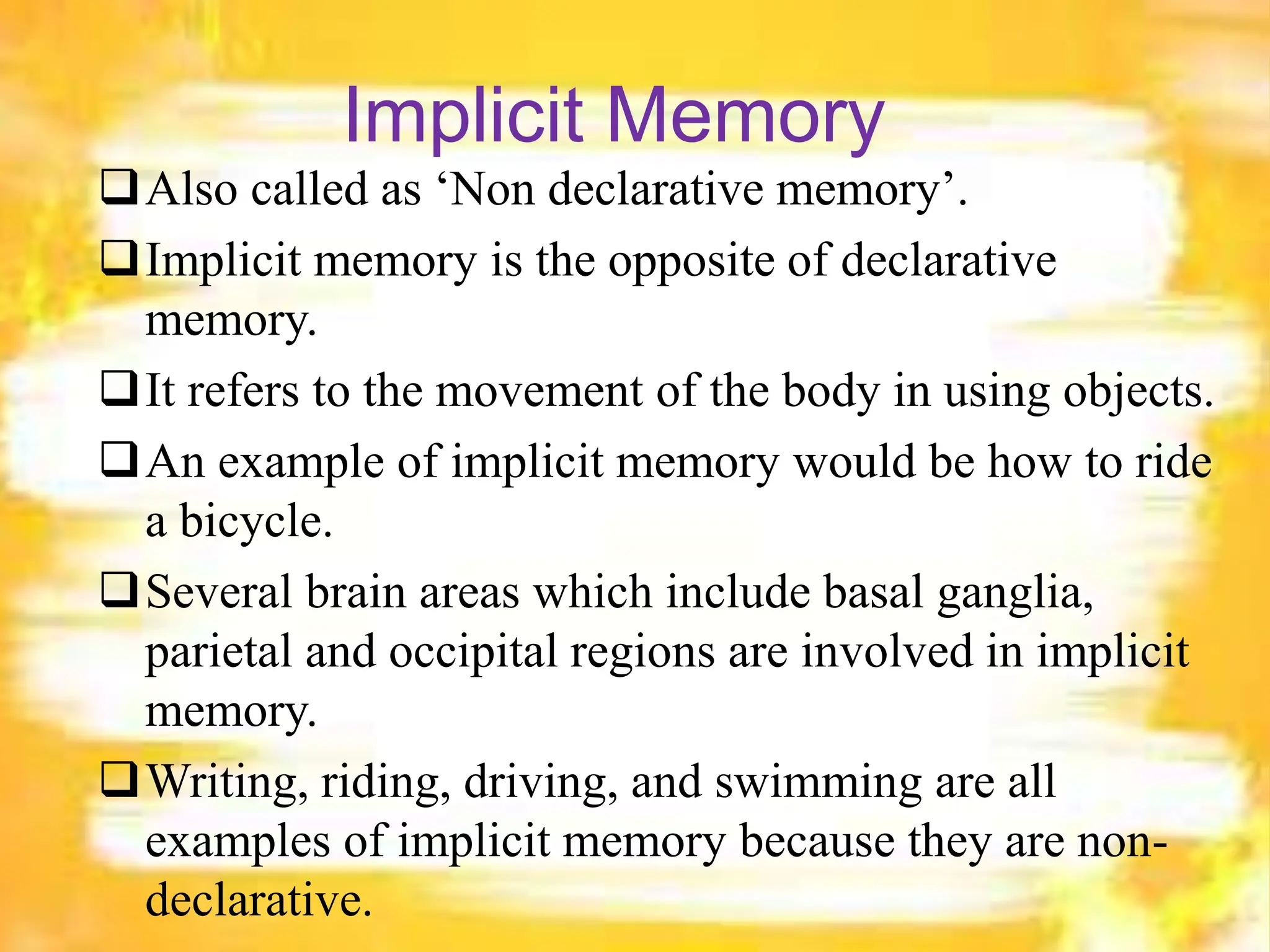Memory is the process of encoding, storing, and retrieving information over time. There are three main types of memory: sensory memory, short-term memory, and long-term memory. Long-term memory can be further divided into explicit and implicit memory. Explicit memory includes episodic and semantic memory, which can be consciously recalled. Implicit memory includes procedural, associative, non-associative, and priming memory, which cannot be consciously recalled. Memory is encoded visually, acoustically, or semantically and has an unlimited storage capacity over long periods of time throughout the brain and nervous system. Effective memory retrieval depends on factors like attention, sleep, exercise, and practice.





























